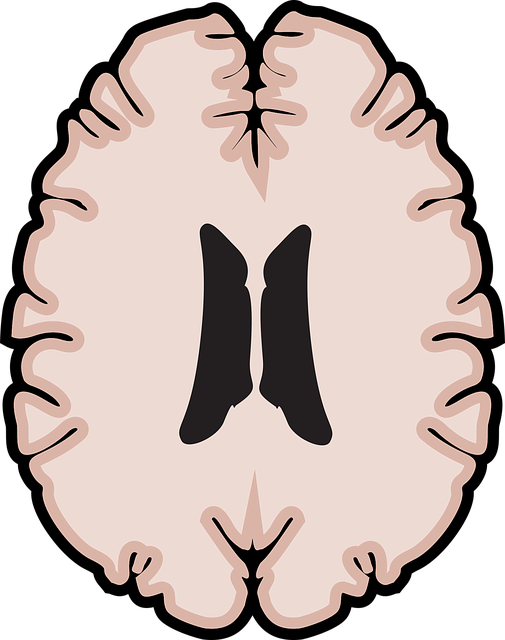Loss, grief, and bereavement are unique and complex processes for everyone dealing with cancer issues in Denver. Effective crisis intervention combines empathy and coping strategies for immediate support and long-term healing. Denver Cancer Issues Therapy (DCIT) integrates various techniques to address psychological and social needs of patients and families, fostering resilience and emotional well-being through open communication and social skills training. Local resources like non-profit organizations and community institutions provide tailored therapy sessions, mindfulness practices, and support groups for cancer-related bereavement in Denver.
Loss, grief, and bereavement counseling are vital support systems for those navigating cancer-related challenges in Denver. This comprehensive guide explores the complex emotions surrounding loss, offering a deep dive into understanding grief, bereavement, and their impact on individuals and families. We examine the critical role of counseling in cancer care, highlighting effective therapy approaches tailored to survivors. Furthermore, we provide local resources and community networks in Denver, guiding folks through Denver’s cancer bereavement landscape with empathy and expertise.
- Understanding Loss, Grief, and Bereavement: A Comprehensive Overview
- The Role of Counseling in Navigating Cancer-Related Grief in Denver
- Effective Therapy Approaches for Cancer Survivors and Their Families
- Finding Support: Local Resources and Community Networks in Denver for Cancer Bereavement
Understanding Loss, Grief, and Bereavement: A Comprehensive Overview

Loss, grief, and bereavement are complex and deeply personal experiences that vary greatly from one individual to another. Understanding these processes is crucial for anyone seeking Denver cancer issues therapy or support during difficult times. Loss refers to the absence of something valued, whether it’s a loved one, a relationship, or even a part of oneself. Grief is the emotional response to loss, characterized by feelings like sorrow, anger, confusion, and loneliness. Bereavement, on the other hand, is the period following a significant loss during which individuals work through their grief and adjust to life without what they’ve lost.
Empathy building strategies and mind over matter principles are essential components of effective crisis intervention guidance. By fostering understanding and compassion, therapists can help individuals navigate the intricate landscape of their emotions. Crisis intervention techniques aim to provide immediate support and coping mechanisms while also offering long-term strategies for managing grief and bereavement. These interventions acknowledge that healing is a journey, unique to each person, and that embracing one’s feelings is integral to the process.
The Role of Counseling in Navigating Cancer-Related Grief in Denver

Navigating cancer-related grief is a challenging journey, and in Denver, where cancer issues are prevalent, access to compassionate support is vital. Counseling plays a pivotal role in helping individuals process their loss and cultivate inner strength. Through therapy, those affected by cancer can explore their emotions, find healthy coping mechanisms, and enhance their emotional well-being.
Many healthcare providers in Denver recognize the importance of addressing grief as an integral part of cancer care. They employ various techniques to support patients and their families, including Burnout Prevention Strategies to ensure they can provide long-term assistance. By promoting Emotional Well-being Promotion Techniques, counseling sessions empower individuals to transform their experiences into a source of resilience, fostering a sense of hope and healing amidst the heartache.
Effective Therapy Approaches for Cancer Survivors and Their Families

Cancer survivors and their families often face complex emotions and challenges following a cancer diagnosis and treatment. Effective therapy approaches play a crucial role in helping them navigate this difficult journey. One prominent method gaining recognition is Denver Cancer Issues Therapy (DCIT), which focuses on addressing the unique psychological and social needs of cancer patients and their loved ones. This approach integrates various therapeutic techniques to support emotional regulation, one of the key aspects often affected during and after cancer care.
DCIT encourages open communication and provides a safe space for individuals to express their grief, fear, or anger. Additionally, it offers valuable tools for social skills training, which is essential as cancer survivors may experience changes in their relationships and social interactions. By combining these strategies, healthcare providers equipped with cultural competency training can cater to the diverse needs of cancer families, fostering resilience and enhancing overall well-being.
Finding Support: Local Resources and Community Networks in Denver for Cancer Bereavement

In Denver, individuals facing cancer-related bereavement can find invaluable support through local resources and community networks dedicated to addressing Denver cancer issues. Non-profit organizations like the Cancer Support Community offer a safe space for those in mourning, providing therapy sessions tailored to coping with loss. These groups facilitate shared experiences, enabling participants to build resilience through mindfulness meditation practices that aid in stress reduction and burnout prevention.
Community churches, libraries, and healthcare centers also host support groups, fostering connections among individuals navigating similar challenges. Local initiatives emphasize the importance of developing coping skills, offering workshops on grief management, communication strategies, and emotional well-being. By leveraging these resources, Denver residents can find solace, gain insights from peers, and embark on their healing journey with enhanced tools for managing cancer bereavement.
Loss, grief, and bereavement counseling play a pivotal role in helping individuals and families navigate the challenging emotional landscape following a cancer diagnosis or loss. This article has provided an in-depth look at understanding these complex emotions, with specific focus on cancer-related grief in Denver. We’ve explored effective therapy approaches tailored to cancer survivors and their loved ones, highlighting the importance of professional support. Moreover, local resources and community networks in Denver offer invaluable assistance for those grappling with cancer bereavement. By recognizing the significance of counseling in Denver cancer issues therapy, individuals can find solace and healing during this difficult journey.












